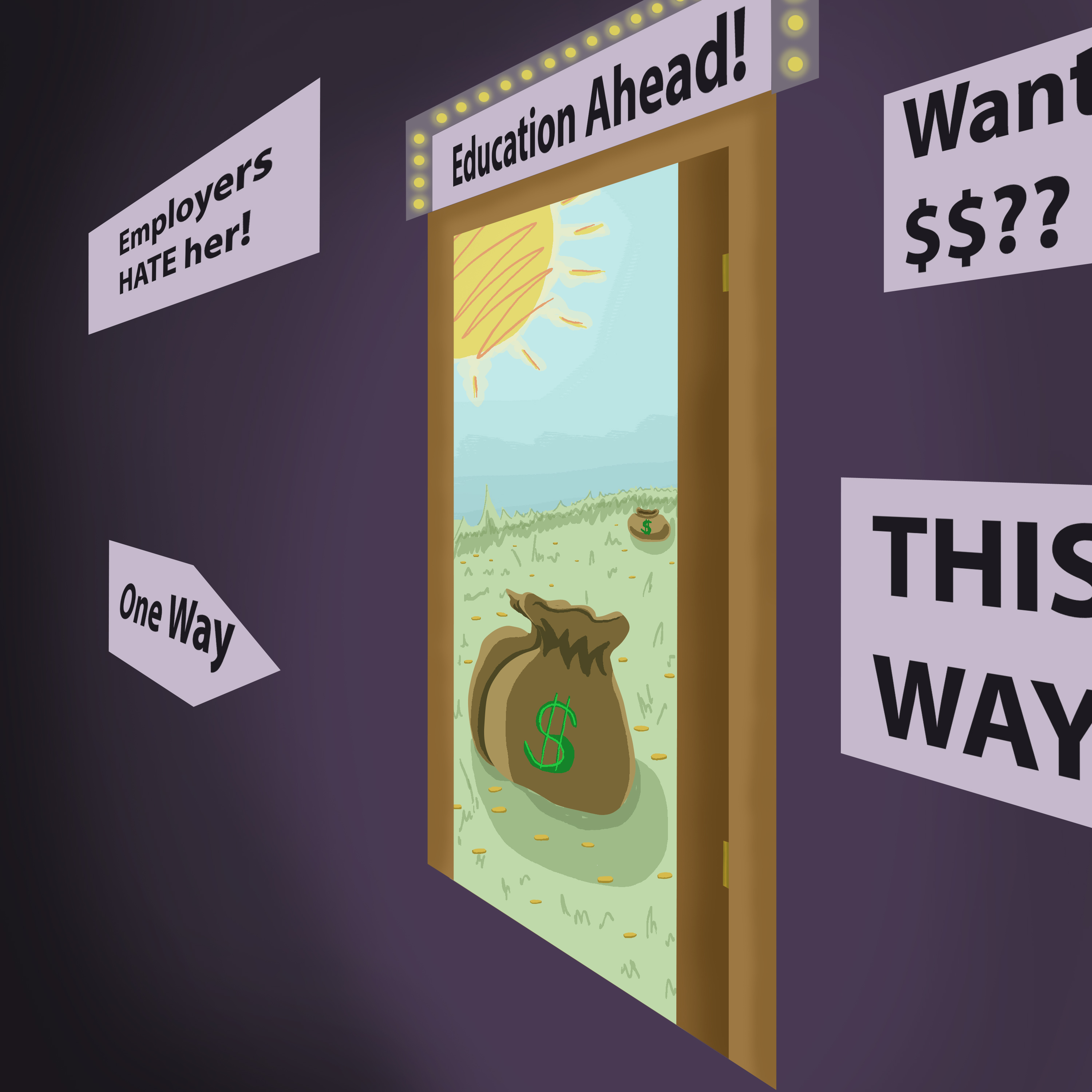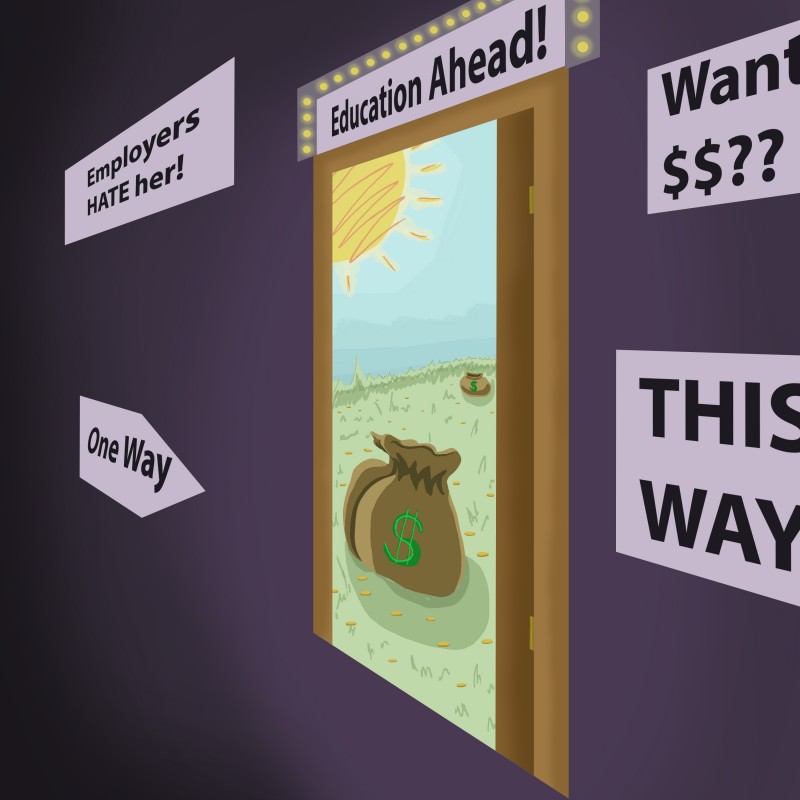Is the value of university tuition worth it?

Is university really the key to success?

“Do what you love and the money will follow.”
“Choose a job you love and you never have to work a day in your life.”
Pop quiz. What do both of the above statements have in common? Any guesses? As a university student, you have definitely heard them before. Alright, time’s up.
Both of the statements have to do with the job market. The bachelor degree from a university is generally the final stretch of a child’s educational journey. Finishing an undergraduate degree puts an individual in a cumbersome spot.
Do I go on to graduate school or do I enter the “real world?” Obviously, there are more options than those two, but generally speaking, most university students will end up in that position. In order to understand the “real world,” one must look at the common events of the people entering it. Long, long ago — 21-22 years most likely — you were born.
Your parents likely had high hopes and aspirations for your future so the obvious choice your parents likely made is to send you to university so you can have a well-paying job, and by extension, a happy life.At one point in your life, you enter the public school system, which is kindergarten through grade 12 in Ontario.
Dates, semi-formals, dealing with drama, trying new things, experiencing new experiences, going through puberty, climbing the social ladder, going through a “rebellious phase,” the prom and interacting with a plethora of different people are all aspects of this journey. Hopefully, while you are being bombarded with all of these wondrous new things, you find out what you want to do with your life. Some will say 18 is too early of an age to decide what to do, but nevertheless, it’s a reality. Maybe you liked photography, English, singing, math, business, engineering or history.
The urging of your parents and your teachers who tell you of the fabled “university experience” as well as your own interests compel you to go to university. Whether your interests are for money or intellectual passion for the subject you study, you are finally here. The last stretch. University.
A keen reader has probably noticed a problem in the generalized scenario I bring forward. While your experiences may vary, this route got you to university. The problem is this: more and more people are entering university than ever before. An economically literate individual will tell you that this has severe implications for each person who enters.
While you sit in your lecture, listening to your professor go over some theory or world issue, most, if not all people in that same lecture hall are going to graduate with the exact same credentials as you are.
If you are about the money, it is incredibly likely that others in your lecture hall are for the money as well. Now, there you are, the lecture hall, the university you are in, the universities in Ontario, and the universities all over Canada.
You are one person out of hundreds of thousands of people in Canada who are all searching for a finite number of jobs. The hired will be hired, but where does that leave the rest?
This wouldn’t be a problem if university was free. It would just be four years of learning and enriching the mind, while making long lasting friendships and meeting incredibly smart, talented, and opinionated people.
That would be time well spent, right?
But university isn’t free.
Experiencing all of these things comes with a cost. Your student invoice does not list “having fun” or “long lasting friendships.” Those things are merely a by-product of being with your fellow age group. You are paying for more boring things like credits. Most families cannot finance the cost of an education and as such have to take on debt in order to cover the costs. When those four years of your degree are up, money must be paid.
Debt is the chain that keeps people mediocre. We invest our finite time into monotonous jobs we don’t want to do, but we do them to pay off debt. Debt has immense power over the actions of an individual who has it. We are slaves to it.
Not being able to find a job in job market that grows more challenging to venture into each year is not the end of the world, but it can be disastrous. Defaulting on a loan carries massive consequences.
If you are unable to pay your loans, you probably cannot get a mortgage, or a car loan. Your credit score will plummet. This severely inhibits your actions and keeps you a slave to the debt. But was it worth it?
“Do what you want and the money will follow.”
I propose a change to this age old reasoning. “Do what others love and the money will follow.”
That’s a story for another day.


